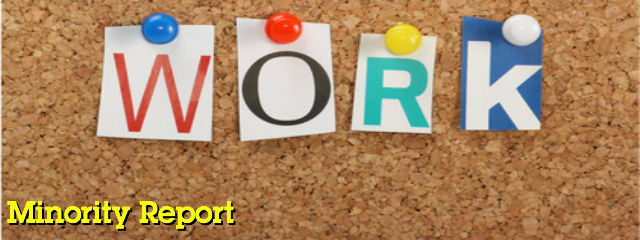Unemployment Rate Much Higher For Black Teens
by January 27, 2015 10:43 pm 142 views

Arkansas’ labor market is showing signs of stability, but the jobless rate for black teenagers in Arkansas hovers at or below 40%, and has in recent years been as high as 53.9%.
The jobless rate for Arkansas during December fell to 5.7% compared to 7.4% in December 2013, and down from 5.9% in November, according to figures released Tuesday (Jan. 27) by the U.S. Bureau of Labor Statistics. The December numbers are subject to revision.
While the labor market trends are better, they’re not if you are a black teenager. The jobless rate for blacks age 16-19 was 37.4% in November – the most recent month data is available. That is down from 39.7% in October, and just below the 37.9% in November 2013.
The November jobless rates were much lower for white (9.1%) and hispanic (8.3% teenagers. The jobless rates for white and hispanic teenagers have seen big drops in recent years, but that has not been the case for black teenagers. Following is a five-year track of the jobless rates for the three demographics.
November 2014
Black: 37.4%
White: 9.1%
Hispanic: 8.3%
November 2013
Black: 37.9%
White: 32%
Hispanic: 47.9%
November 2012
Black: 40.2%
White: 23%
Hispanic: 7.8%
November 2011
Black: 42.9%
White: 17.7%
Hispanic: 12.4%
November 2010
Black: 38.3%
White: 27.5%
Hispanic: 30.9%
Greg Kaza, executive director of the Arkansas Policy Foundation, said the persistent high unemployment among black youth is “scandalous.” He said part of the blame is on an education system failing minorities with respect to providing workforce skills.
“It’s a sign that the education system isn’t working,” Kaza said.
Jeff Collins, an economist with The City Wire, said education is one of “numerous and complicated” reasons the jobless rate remains high in the black community. Collins said the “structural element” has changed in recent years in which an erosion of the manufacturing base has shifted job opportunities to the service sector.
“So what you have is more competition for jobs that require less experience and education. So the people who are going to be left out are those who are least prepared for employment and those who are least able to get to a job,” Collins said.
He also said “discrimination is clearly still an issue” among employers when it comes to hiring teenagers and black teenagers. In addition to racial discrimination, Collins said employers are more likely to hire older workers – non-teenagers – who have a job experience than a teenager looking for that first job.
As for a solution, Collins said there are no easy answers. He said governments and the private sector could do more to provide career opportunity lessons – resume building, interview skills, etc. – and skills training. He also said entrepreneurial lessons learned through “micro-loan” efforts in third-world countries should be considered.
“Could we create that (micro-loan entrepreneurism) in our communities? … We might look at that, and fund small enterprises that would provide employment experiences,” Collins said. “That’s a more positive way, I would think, of intervening in those communities with high jobless rates.”
